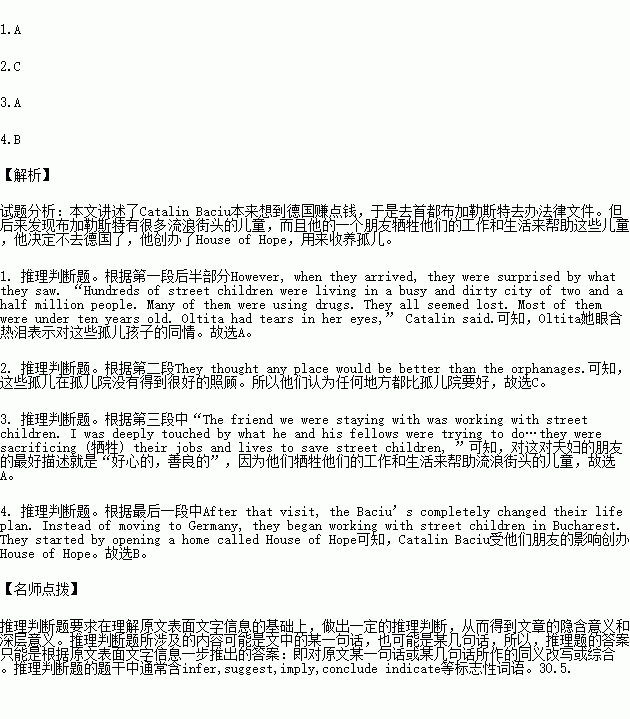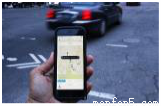题目内容
Catalin Baciu from Romania wanted to make money in Germany. So, he and his wife, Oltita went to Bucharest, the capital city of Romania to get legal papers to move to Germany. However, when they arrived, they were surprised by what they saw. “Hundreds of street children were living in a busy and dirty city of two and a half million people. Many of them were using drugs. They all seemed lost. Most of them were under ten years old. Oltita had tears in her eyes,” Catalin said.
Many of these streets children were orphans(孤儿). They had grown up in the government orphanages, but had run away. They thought any place would be better than the orphanages. But the streets were cold and hard. The winters were freezing. The children had to sleep in warm sewers (下水道) under the ground. Many of the children even became involved with crime and violence (暴力).
The Baciu’s did not like the sight of so many pitiful children in Bucharest. They wanted to leave immediately and go to Germany. However, that night, Catalin and Oltita stayed with a friend in Buchares. “The friend we were staying with was working with street children. I was deeply touched by what he and his fellows were trying to do…they were sacrificing (牺牲) their jobs and lives to save street children, ” Catalin said.
After that visit, the Baciu’s completely changed their life plan. Instead of moving to Germany, they began working with street children in Bucharest. They started by opening a home called House of Hope, which provided a warm and loving place for children who needed to get away from the streets. Many hospitals and business workers called House of Hope when they found troubled kids. Everyone knew the House of Hope would help.
1.Oltita had tears in her eyes because ________.
A. she felt pity for the street children
B. she almost lost her Way in Bucharest
C. she didn’t get legal papers
D. she would leave Romania
2.We can infer that the orphans in the orphanages ________.
A. liked to run around
B. lived a very busy life
C. didn’t receive good care
D. were under ten years old
3.Which of the following can best describe the couple’s friend?
A. Kind-hearted.B. Short-sighted.
C. Hard-working.D. Self-confident.
4.The Baciu’s opened House of Hope ________.
A. at the risk of losing their home
B. under the influence of their friend
C. in support of the local hospital
D. with the help of the Germany government
 天天向上一本好卷系列答案
天天向上一本好卷系列答案 小学生10分钟应用题系列答案
小学生10分钟应用题系列答案


 ),并在此符号下面写出该加的词。
),并在此符号下面写出该加的词。